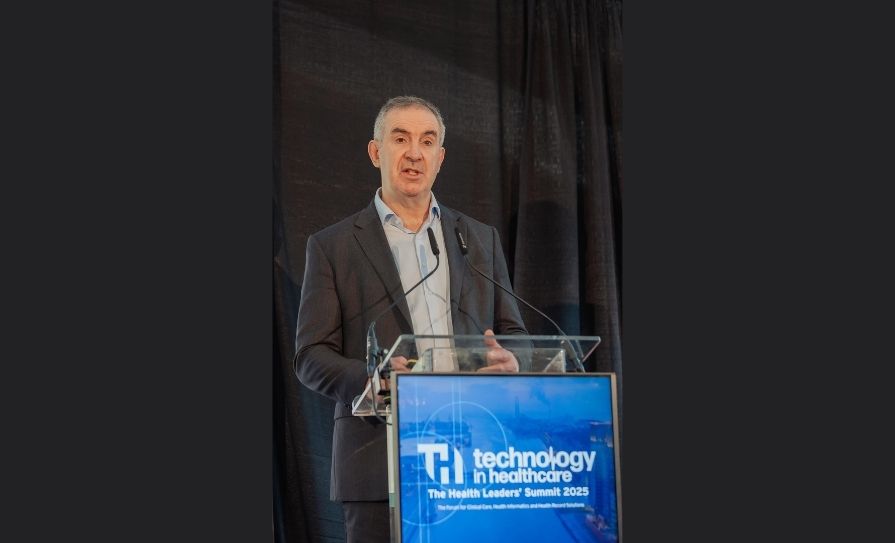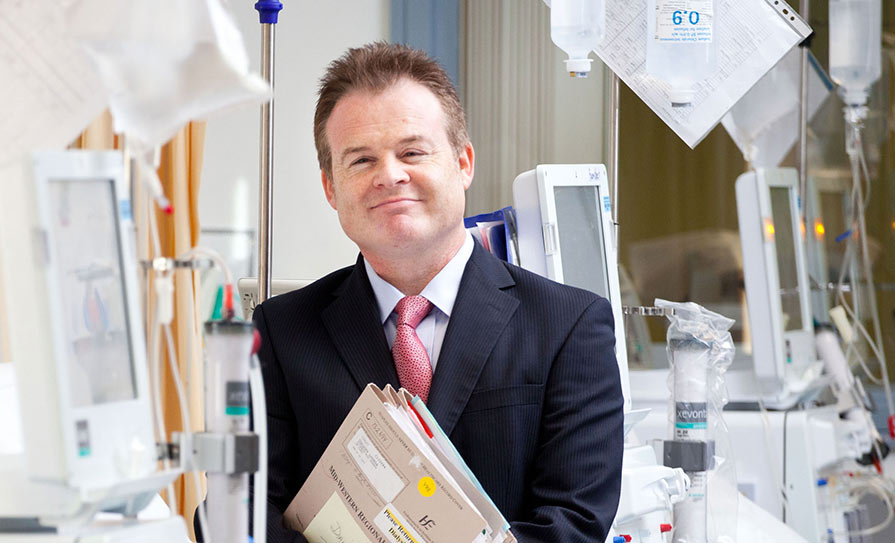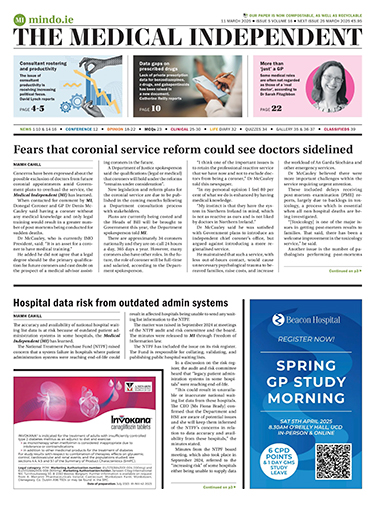Chair of the IMO GP committee Dr Denis McCauley outlines why general practitioners remain ‘extremely concerned’ about the Government’s plan to extend free GP care entitlements
In September 2022, as part of Budget 2023 measures, the Government announced its plans to extend GP care free at the point of access to all children aged six and seven years and to all those on the median income or less (€46,000 after tax) through the granting of doctor-only visit cards (DVCs). These proposals could see upwards of 500,000 patients being added to the GMS system.
At the time of the announcement, the IMO strongly criticised the proposals as ill-conceived and poorly planned in the context of current capacity, workload, and workforce numbers. Our view has not changed in the intervening period. This politically motivated extension has only reinforced our view that the Government has no understanding of the serious capacity problems in general practice.
Let us be clear, the IMO is not against the removal of financial barriers for patients who require GP services; however, such a significant expansion of services requires long-term planning, resourcing, and growing of capacity.
Warnings
In meetings with the HSE and Department of Health, both before and after the Budget 2023 announcement, the IMO pointed out the negative impact of this policy and warned of:
- Insufficient capacity within the system to deal with the inevitable increase in demand for appointments in both daytime and out-of-hours general practice;
- Dangers associated with displacement of care particularly for those who are sickest and most in need of care;
- Negative impact for patients with longer waiting times to see a GP – delayed care for patients and increased presentations in out-of-hours and emergency departments;
- Access may be free, but will not be timely;
- The problems all too evident in the NHS GP system will be an inevitable consequence of this poorly thought out policy;
- This policy may only serve to drive a two-tier system in general practice, where up to this point the principle of equity of access has been maintained.
This announcement would increase the percentage of the population entitled to GP care free at the point of access to over 50 per cent. The entire GMS contract and model is predicated on a 60/40 private/public split and a significant increase beyond 40 per cent should trigger a contract renegotiation and review of current services. Clearly, as a system becomes more universal, there then must be a greater share of risk and costs borne by the State. The current proposals seem to ask the GP to provide the service on behalf of the State, but bear all the risk and cost of the proposals.
While welcoming the very much delayed strategic review of general practice and a renegotiation of the GP contract, as provided for in the 2019 IMO GP agreement, we are strongly of the view that this should be completed before any significant extension of population covered by care, which is free at the point of access. There is strong evidence that this policy will not be good for patients who are already facing delays for routine GP appointments and not good for the development of general practice itself as we enter a period of uncertainty as to the resourcing of the service.
While agreeing to participate in the strategic review, we have been very clear with both the Department and the HSE that both the strategic review and new contract negotiations should take place before any further expansion of eligibility so that we can ensure that capacity measures, appropriate resourcing, and planning are in place before we overload a system that is already operating at maximum capacity.
Having a strategic review after you have increased the number of patients within the GMS/DVC system by over 25 per cent, rather than before, is poor planning. Our sincere hope is that this review is not accompanied by the sound of a barn door closing long after the horse has bolted.
While recognising the Government’s right to make policy, we also recognise the individual GP’s right to decide whether or not to participate in any publicly funded GP service. We have continued to meet with the Department and the HSE in relation to these proposals, but to date no agreement has been reached and we remain extremely concerned as to the impact of the policy.
The IMO is in favour of universal GP care, but this must be done in a careful planned manner with specific capacity milestones, which, once reached, could trigger further agreed expansion. The move to a universal system must be resourced, planned, and supported rather than the current chaotic proposal.













Leave a Reply
You must be logged in to post a comment.